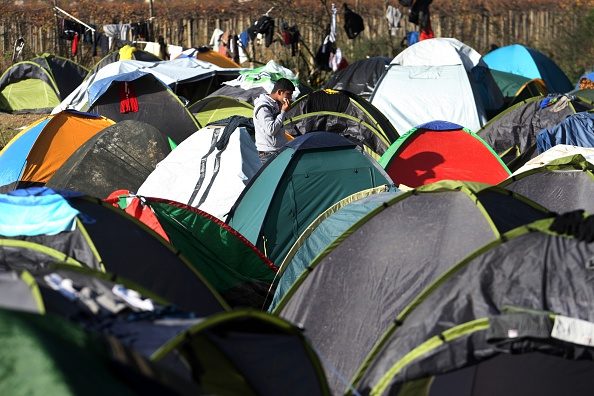Thousands of migrants in limbo as Macedonia turns them away


A free daily email with the biggest news stories of the day – and the best features from TheWeek.com
You are now subscribed
Your newsletter sign-up was successful
Thousands of migrants who are not fleeing from violence in Syria, Iraq, and Afghanistan, are being turned away from Macedonia, with many protesting along the Greek border.
On Sunday, about 100 men from Morocco and Iran shouted "We want to live!" and "We are not terrorists!" as riot police formed a barricade. Croatia, Slovenia, and Serbia announced similar restrictions last week; Macedonia’s Ministry of Foreign Affairs says that while refugees must receive "humane treatment," the country must also "secure control of our borders." The area is filled with migrants who are trying to get to Western Europe, and the U.N. estimates 700,000 have arrived in Greece this year alone — 62 percent are from Syria, 23 percent from Afghanistan, and 7 percent from Iraq, with 8 percent from other countries.
Some asylum-seekers say that even though they aren’t from Syria or Iraq, they face danger at home — one musician, wearing a necklace with a cross, told The Washington Post he was a convert to Christianity. "If I go back to Iran, they will kill me," he said. "We are so sad for Paris. But we are not terrorists. We just don't have freedom. What is the difference between Iranian people and Syrian people?" He also showed off scars on his arms, and said: "This is what happens in Iran." Doctors Without Borders and the U.N. High Commissioner for Refugees say 1,500 migrants have been denied entry to Macedonia, and they have set up several tents in Greece for those who have not been allowed to cross the border. "This will bring a lot of suffering to the people trying to get through," Ljubinka Brashnarska of the UNHCR told the Post. "People seeking asylum need to be screened on individual merit, not on the basis of their nationality."
The Week
Escape your echo chamber. Get the facts behind the news, plus analysis from multiple perspectives.

Sign up for The Week's Free Newsletters
From our morning news briefing to a weekly Good News Newsletter, get the best of The Week delivered directly to your inbox.
From our morning news briefing to a weekly Good News Newsletter, get the best of The Week delivered directly to your inbox.
A free daily email with the biggest news stories of the day – and the best features from TheWeek.com
Catherine Garcia has worked as a senior writer at The Week since 2014. Her writing and reporting have appeared in Entertainment Weekly, The New York Times, Wirecutter, NBC News and "The Book of Jezebel," among others. She's a graduate of the University of Redlands and the Columbia University Graduate School of Journalism.
-
 Political cartoons for February 16
Political cartoons for February 16Cartoons Monday’s political cartoons include President's Day, a valentine from the Epstein files, and more
-
 Regent Hong Kong: a tranquil haven with a prime waterfront spot
Regent Hong Kong: a tranquil haven with a prime waterfront spotThe Week Recommends The trendy hotel recently underwent an extensive two-year revamp
-
 The problem with diagnosing profound autism
The problem with diagnosing profound autismThe Explainer Experts are reconsidering the idea of autism as a spectrum, which could impact diagnoses and policy making for the condition
-
 Nobody seems surprised Wagner's Prigozhin died under suspicious circumstances
Nobody seems surprised Wagner's Prigozhin died under suspicious circumstancesSpeed Read
-
 Western mountain climbers allegedly left Pakistani porter to die on K2
Western mountain climbers allegedly left Pakistani porter to die on K2Speed Read
-
 'Circular saw blades' divide controversial Rio Grande buoys installed by Texas governor
'Circular saw blades' divide controversial Rio Grande buoys installed by Texas governorSpeed Read
-
 Los Angeles city workers stage 1-day walkout over labor conditions
Los Angeles city workers stage 1-day walkout over labor conditionsSpeed Read
-
 Mega Millions jackpot climbs to an estimated $1.55 billion
Mega Millions jackpot climbs to an estimated $1.55 billionSpeed Read
-
 Bangladesh dealing with worst dengue fever outbreak on record
Bangladesh dealing with worst dengue fever outbreak on recordSpeed Read
-
 Glacial outburst flooding in Juneau destroys homes
Glacial outburst flooding in Juneau destroys homesSpeed Read
-
 Scotland seeking 'monster hunters' to search for fabled Loch Ness creature
Scotland seeking 'monster hunters' to search for fabled Loch Ness creatureSpeed Read
